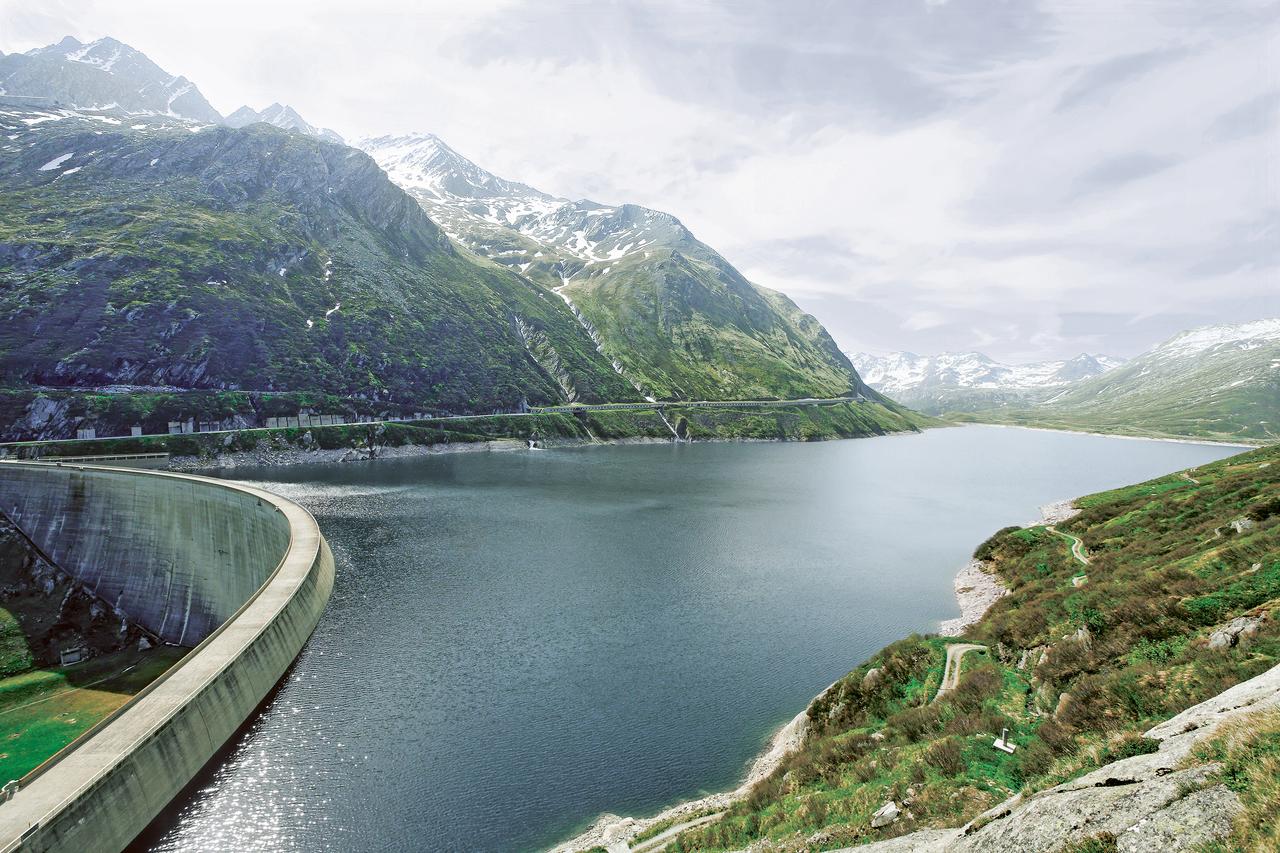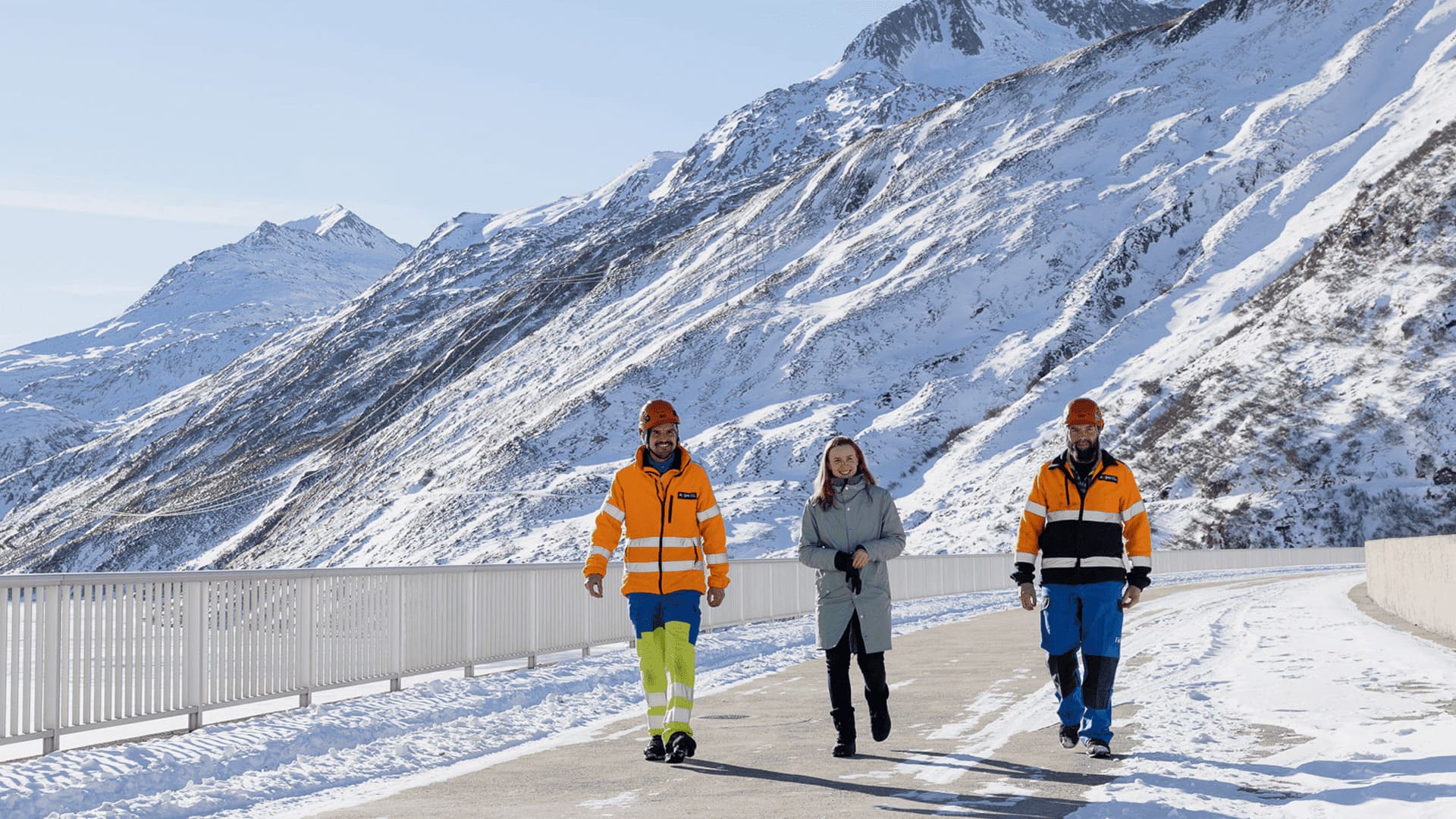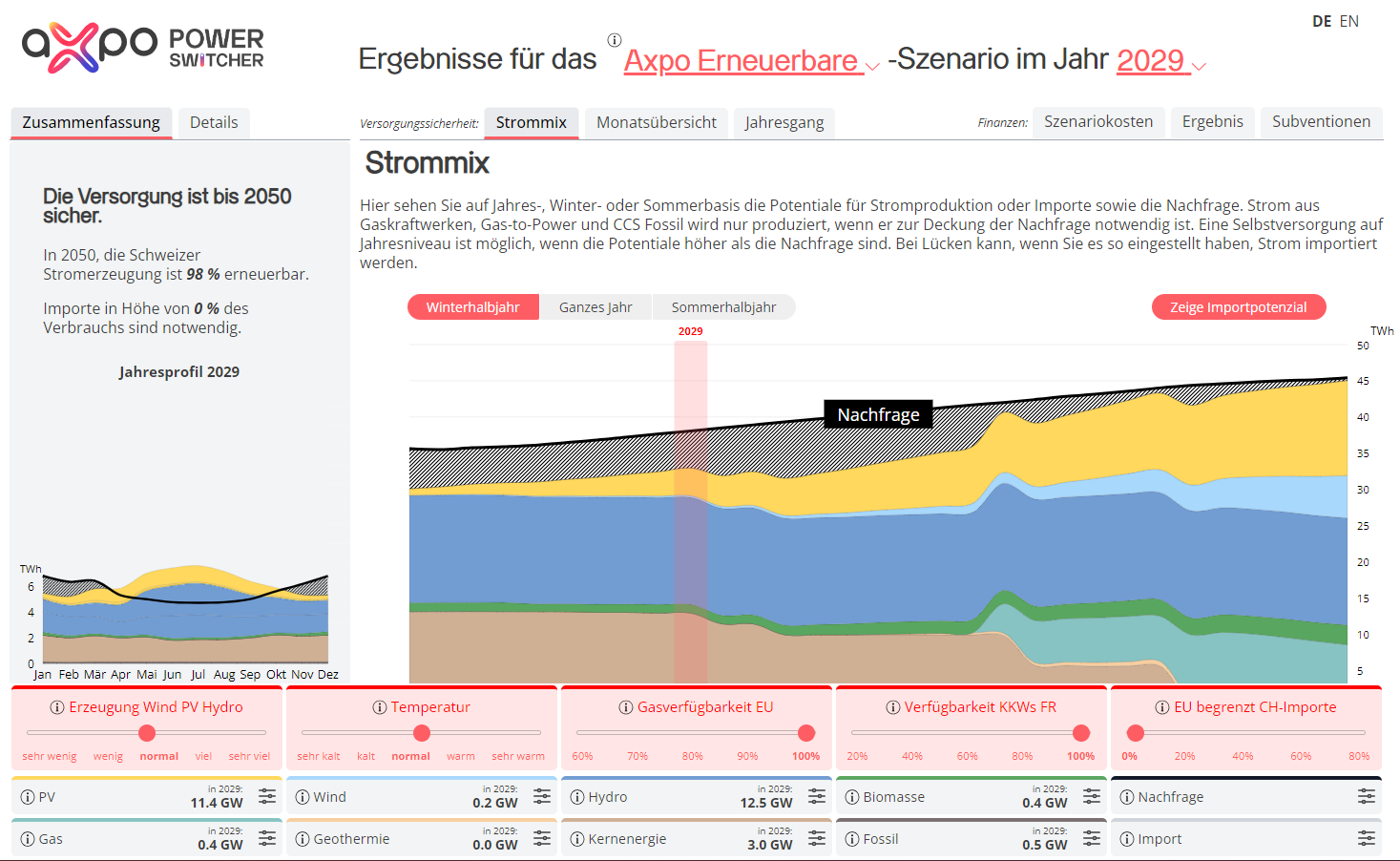13.06.2021 | Christoph Brand on the public debate
"Six objectives for the energy debate"
The intensive discourse on the energy transition in the context of climate change was already underway before the CO2 law discussions. Unfortunately, this important debate was unnecessarily impeded by certain aspects. I would like to try to highlight six of these here in hopes of a change.
First: No either-or positions
The energy transition can only succeed through the interplay of different technologies, and none of these is a solution in itself. Below the fog line or during the night photovoltaic plants are useless. There is more wind during the winter than in the summer, but that will not help us much in Switzerland because there is too little potential for wind energy. Gas-fired power plants produce CO2, but could cover supply shortages in difficult situations. All too often proponents and opponents only point out the advantages and disadvantages of certain technologies, which is not conducive to the discussion.
Second: A more balanced view and less individual interest opportunism
A prime example is hydropower. Although this energy is CO2-free, renewable, and locally available, it faces major obstacles and is, hence, subject to individual interests. Upgrades of any kind in existing plants are opposed by environmental organisations that often only advocate their own interests and fail to take an overall view of the situation. Upgrade investments are de facto prevented by our internationally unparalleled high water rates, which are maintained for a few at costs to all us. On a small scale, every wind project is combated to the extreme. What holds true everywhere: It's always the others that should make compromises.
Third: More cost-benefit discussions
When local clientele policy results in cases such as in Germany where over 30,000 Euros are paid per tonne of prevented CO2 emissions, this is absurd and damaging because money is a scarce resource. It goes without question that simply free-riding ("Switzerland does not have an impact on global CO2 emissions, so we don't need to do anything") is out of the question, not only on ethical grounds. However, that does not mean that economic reason can be thrown overboard to prevent CO2 at all costs on a local level, whilst these same funds would benefit the global climate much more if invested in reputable projects abroad.
Fourth: More transparency
Rightly so, models are used frequently to forecast the future. But aside from the mechanisms, the underlying assumptions are key. Electricity consumption in Switzerland will increase and the SFOE is now aware of this. However, per capita consumption should not increase. A key assumption when one looks closely: Hydrogen, which absorbs a great deal of electricity in its production, is only imported. Is this realistic, is it useful, and is it intentional? Another example: The Energy Perspectives assume that we will have to temporarily import 17 TWh of electricity per year (today Switzerland consumes about 60 TWh). The assumption behind this is that other countries can export power. However, it is currently expected that Germany will become an import country, Italy is one already, and France is also heading in this direction. How does all that make sense?
Fifth: Less ideology, more pragmatism
There is absolutely no reason to demonise photovoltaic production profiles under the title "Flatterstrom" (intermittent electricity). We know about the advantages and disadvantages of the various energy types, and even so we should go ahead with the extensive installation of PV plants on all suitable rooftops. That's also called a "no regret move". The discussion on nuclear power is totally ideological as well, primarily in the German-speaking region. From a rational viewpoint, one can say: Based on the number of deaths per produced MWh of electricity, nuclear power is in the same league in terms of safety as wind and photovoltaics. But the costs are way too high, currently and at least in Western Europe. The last example concerns the role of government. The state is not a saviour that can solve all problems, nor is it a cost factor that must be eliminated. To solve public problems like climate change, governmental regulations such as a CO2 tax are needed. The state should not try to be an entrepreneur, but instead prioritise the few, major, effective lines of regulation, rather than stifling every innovation through micro-management.
Sixth: A positive dialogue culture
This starts with objectivity. Mutual respect fosters honesty. This dialogue culture is always friendly, and presumes that one has the will to change one's opinions based on evidence. It has the goal of finding a solution and should never drift off into political games. According to Hubert H. Humphrey: "To err is human. To blame someone else is politics."




.jpg)





